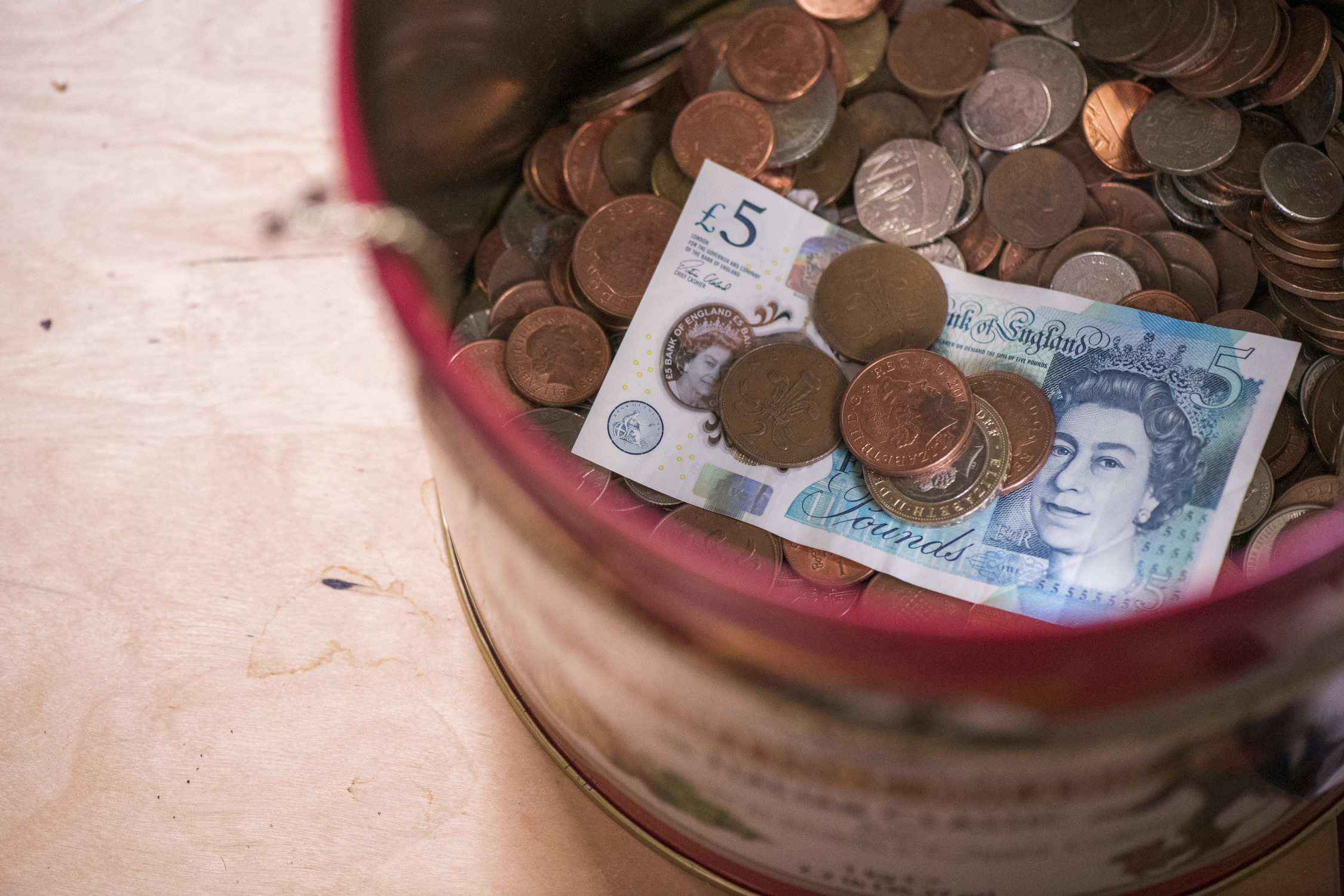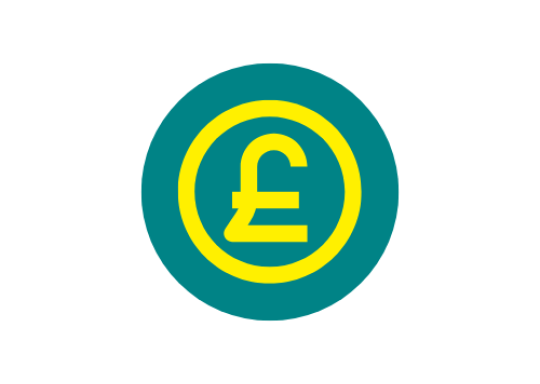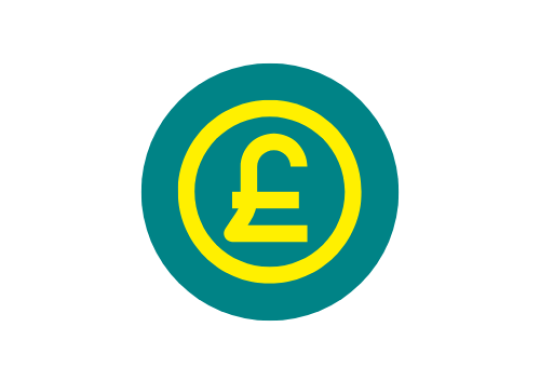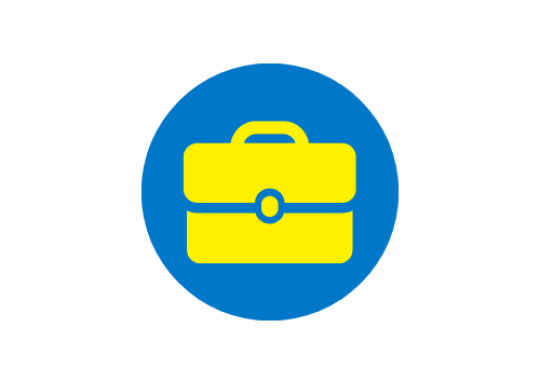Prescription Charges and Health Benefits
The National Health Service (NHS) generally provides health care free of charge. However there are some fixed charges that must be paid for prescriptions, dental treatment, sight tests, glasses, wigs and fabric supports. You may be entitled to help with these charges.
You may be able to get vouchers that can be used to buy fresh milk, infant formula, fresh/frozen fruit and vegetables, and fresh, dried or canned pulses. You can also get help with travel costs for treatment on the NHS provided you fit into certain categories. The information below outlines the type of help you may be able to get, depending on your personal circumstances and where you live.
Revised and updated: 23rd April 2025
Contents
Travel to hospital for NHS Treatment
Help under the NHS Low Income scheme

Want to donate?
These factsheets will always be free, so that everyone who needs them can access them, no matter what!
However, if you found them helpful and are able to, why not consider making a small suggested donation of £1 towards our work?
Prescription Charges
Prescriptions are free in Northern Ireland, Scotland and Wales, but cost £9.90 in England. You do not have to pay for prescriptions if you are in one of the following categories (if you are not entitled to free prescriptions, you may benefit from buying a ‘prescription prepayment certificate’ – see below). You are:
- getting universal credit and you have no earnings or your (and your partner’s) monthly earnings are no more than £435, or £935 if your award includes the child amount or you (or your partner) have a limited capability for work;
- getting income-related employment and support allowance (ESA) or pension credit guarantee credit;
- aged under 16;
- aged under 19 and in full-time education;
- aged 60 or over;
- an NHS hospital in-patient;
- receiving treatment for a sexually transmitted infection if the medication is supplied by a hospital or an appropriate clinic;
- receiving treatment for tuberculosis - the drugs in relation to your treatment are free;
- subject to a community treatment order - the drugs in relation to your treatment are free.
You are entitled to an exemption certificate for free prescriptions if you are:
- pregnant or have given birth (including stillbirth) in the last twelve months. Get a maternity exemption certificate from your doctor, midwife or health visitor;
- a war pensioner or are on the Armed Forces Compensation scheme (in each case, the prescription must be for your accepted disability);
- undergoing treatment for cancer or the effects of cancer or the effects of cancer treatment.
If you are a cancer patient, your certificate will last for five years and will entitle you to all your prescriptions free of charge, not just those relating to cancer. This certificate can be renewed as many times as necessary and will not have to be returned if your condition changes.
You are also entitled to a medical exemption certificate for free prescriptions if you have one of the following specified health conditions:
- you have a continuing physical disability that prevents you from leaving home without the help of another person (excluding temporary disabilities);
- you have a permanent fistula (e.g. colostomy) requiring continuous surgical dressing or an appliance;
- you have diabetes mellitus (except where treatment is by diet alone), myxoedema, hypoparathyroidism, diabetes insipidus or other forms of hypopituitarism, forms of hypoadrenalism (including Addison’s disease) for which specific substitution therapy is essential, and myasthenia gravis;
- you have epilepsy, requiring continuous anti-convulsive therapy.
To get an exemption certificate for one of these health conditions, you need to claim on form FP92A, available from your doctor, hospital or pharmacist.
You (and your partner) are entitled to free prescriptions if you have a valid HC2 certificate (full help with health costs) under the Low Income scheme.
Prepayment certificates
In England, a prescription pre-payment certificate costs £32.05 for three months or £114.50 for 12 months.
Minor ailments scheme
Some pharmacies run a minor ailment scheme which enables you to get certain prescription medicines without the need to contact your doctor. If you don't pay for prescriptions, you can go to a pharmacy running this scheme and be given a medicine for a range of minor ailments, free of charge, on the NHS.
Minor ailments could include coughs, colds, headaches, hay fever, insect bites and stings, eczema, earache and diarrhoea.
Pharmacies can help in other ways, such as offering repeat dispensing services for any medicines you have which are regularly prescribed, again without the need to attend a doctor’s surgery. Speak to your local pharmacist about what they can offer.
Dental Charges
Dentists can provide private dental treatment or NHS dental treatment and many provide a combination of both. You can get free NHS dental treatment (including check-ups, fillings, extractions and provision of dentures) if any one of the following applies. You are:
- getting universal credit and you have no earnings or your (and your partner’s) monthly earnings are no more than £435, or £935 if your award includes the child amount or you (or your partner) have a limited capability for work;
- getting income-related ESA or pension credit guarantee credit;
- aged under 18;
- aged under 19 and in full-time education;
- living in Wales and are aged under 25 or over 60 (free examination only);
- living in Scotland (free examination only);
- an NHS in-patient and the treatment is carried out by a hospital dentist;
- pregnant or have had a baby in the past year;
- an outpatient of an NHS Hospital Dental Service (but there may be a charge for dentures and bridges).
You (and your partner) are entitled to free NHS dental treatment if you have a valid HC2 certificate (full help with health costs) under the Low Income scheme. An HC3 certificate will entitle you to partial help.
If you are receiving a war/service pension, you can claim money back for dental charges if the treatment is for your accepted disability. Call 0808 1914 218 for details.
Note: that you are entitled to free NHS dental treatment if you meet the qualifying conditions at the time the arrangements for the treatment are made, or the time the relevant charges are made. You remain entitled for the course of treatment even if your circumstances change before the charges are made.
NHS Sight Tests
You can get free sight tests if you fit into any one of the following categories. You are:
- getting universal credit and you have no earnings or your (and your partner’s) monthly earnings are no more than £435, or £935 if your award includes the child amount or you (or your partner) have a limited capability for work;
- getting income-related ESA or pension credit guarantee credit;
- aged under 16;
- aged under 19 and in full-time education;
- aged 60 or over;
- an NHS hospital in-patient;
- registered blind, severely sight impaired, sight impaired or partially sighted;
- prescribed complex or powerful glasses with at least one lens which has a power in any one meridian of plus or minus 10 or more dioptres or is a prism-controlled bifocal lens;
- a patient of the Hospital Eye Service;
- a diagnosed glaucoma patient;
- aged 40 or over and are the parent, brother, sister, son or daughter of a person with diagnosed glaucoma;
- advised by an ophthalmologist that you are at risk of glaucoma;
- a diagnosed diabetic;
- living in Scotland.
You (and your partner) are entitled to free eyesight tests if you have a valid HC2 certificate (full help with health costs) under the Low Income scheme. An HC3 certificate will entitle you to partial help.
If you are receiving a war/service pension, you can claim money back for sight tests if the treatment is for your accepted disability. Call 0808 1914 218 for details.
NHS Optical Vouchers
You can get vouchers towards the cost of glasses or contact lenses. If your glasses or contact lenses cost more than your voucher value, you will have to pay the difference. You can get this help if you fit into any one of the following categories. You are:
- getting universal credit and you have no earnings or your (and your partner’s) monthly earnings are no more than £435, or £935 if your award includes the child amount or you (or your partner) have a limited capability for work;
- getting income-related ESA or pension credit guarantee credit;
- aged under 16;
- aged under 19 and in full-time education;
- an NHS hospital in-patient;
- prescribed complex or powerful glasses with at least one lens which has a power in any one meridian of plus or minus 10 or more dioptres or is a prism-controlled bifocal lens;
- a patient of the Hospital Eye Service needing frequent changes of glasses or contact lenses.
You (and your partner) are entitled to full help with the vouchers if you have a valid HC2 certificate (full help with health costs) under the Low Income scheme. An HC3 certificate will entitle you to partial help.
If you are receiving a war/service pension, you can claim money back for glasses or contact lenses if the treatment is for your accepted disability. Call 0808 1914 218 for details.
Wigs and Fabric Supports
These items will be prescribed by a hospital consultant as clinically necessary. You will be able to get this help free if you fit into any one of the following categories. You are:
- getting universal credit and you have no earnings or your (and your partner’s) monthly earnings are no more than £435, or £935 if your award includes the child amount or you (or your partner) have a limited capability for work;
- getting income-related ESA or pension credit guarantee credit;
- aged under 16;
- aged under 19 and in full-time education;
- a war pensioner or are on the Armed Forces Compensation scheme (in each case, the items must be related to your accepted disability);
- an NHS hospital in-patient.
You (and your partner) will also get this help free if you have a valid HC2 certificate (full help with health costs) under the Low Income scheme. An HC3 certificate will entitle you to partial help.
Healthy Start scheme
The ‘Healthy Start’ scheme provides you with a prepaid card that you can use to buy fresh milk, infant formula milk or fresh, frozen or canned fruit and vegetables, and fresh, dried or canned pulses (but not, in the case of fruit, vegetables and pulses, if fat, salt, sugar or flavouring have been added). You can also use your card to get vitamin supplements. The scheme operates in England, Northern Ireland and Wales. There is a different scheme in Scotland: Best Start Foods.
You qualify automatically for the scheme if you fit into any one of the groups mentioned below. You are:
- pregnant for ten or more weeks, under the age of 18 and not subject to immigration control;
- pregnant for ten or more weeks and anyone in your family is getting income-related ESA;
- pregnant for ten or more weeks or you have a child under 4 and anyone in your family is getting one of the following:
- universal credit and, if you (or your partner) work, your monthly earnings (or combined earnings) are no more than £408; or
- pension credit (which includes an additional amount for a child).
Under a temporary extension, you are also eligible if you have a child aged under 4, your family’s take-home pay is less than £408 per month and you are excluded from claiming public funds because of your current, or lack of, immigration status.
You can claim online on the healthy start website, or by phoning the Healthy Start Helpline 0300 330 7010.
Travel to hospital for NHS Treatment
You can get help with fares or other travel expenses for yourself and anyone who needs to travel with you if you are incapable of getting to hospital on your own. You can also get help if you need to accompany a child. The cost covered is normally that by the cheapest method of transport available. If you cannot use public transport because of your disability, you can claim the cost of taxi fares or the cost of car fuel (you should get the agreement of the hospital first).
You can get this help if you fit into any one of the following: You are:
- getting universal credit and you have no earnings or your (and your partner’s) monthly earnings are no more than £435, or £935 if your award includes the child amount or you (or your partner) have a limited capability for work;
- getting income-related ESA or pension credit guarantee credit;
- living in the Isles of Scilly and need to travel to a mainland hospital;
- living in the Scottish Islands or Highlands and have to travel at least 30 miles by land or 5 miles by sea to get to hospital;
- getting NHS treatment abroad. Costs can be met up to the embarkation point as per normal travel expenses. The overseas travel is part of the treatment costs - this must be agreed beforehand by the health authority.
You (and your partner) are entitled to full help with fares or other travel expenses if you have a valid HC2 certificate (full help with health costs) under the Low Income scheme. An HC3 certificate will entitle you to partial help.
If you are receiving a war/service pension, you can claim money back for NHS travel expenses if the treatment is for your accepted disability. Call 0808 1914 218 for details.
Help under the NHS Low Income scheme
If you are on a low income, you can get full or partial help with all NHS charges, including prescription charges, by completing form HC1, available from NHS hospitals, dentists, opticians and pharmacists, by phoning 0300 123 0849 or from the NHS Business Services Authority.
If your income is low enough, you will be sent certificate HC2 for full help with NHS charges, or certificate HC3 for partial help. Young care leavers maintained by a local authority and people living permanently in a care home funded wholly or partly by a local authority are entitled to an HC2 certificate by making a claim under the Low Income scheme without having to satisfy the means test. Asylum seekers (and their dependants) supported by the government should automatically be issued with HC2 certificates.
The assessment process to work out if you are entitled to either an HC2 certificate or an HC3 certificate is similar to that for housing benefit but is slightly more generous (in the treatment of housing costs for example).
Refunds
You can apply for a refund if you pay for a prescription item or service that you could have received free, or at a reduced cost.
For a refund of prescription charges, ask your pharmacist for form FP57.
For a refund of dental charges, ask your dentist for form FP64 or a receipt that shows the amount of the NHS charge and the date you paid. You will also need to complete an HC5 refund form.
For sight test refunds ask the person who tests your sight for a receipt that shows that you paid for the test and the date of payment. Complete an HC5 refund form, making sure you put the date of your sight test on it.
Healthcare equipment
Health Authorities, hospitals and GPs can provide various items of equipment and appliances such as special beds, commodes, urinals, continence pads, special footwear, leg appliances, surgical supports, wheelchair and hearing aids.
Other information
The NHS Business Services Authority has provided an eligibility checker which can advise you whether or not you are automatically exempt from an NHS charge and what you need to do to apply for help.
You can get help and information at your local advice centre, such as Citizens Advice. You can get more information about where to get personal advice from our guidance ‘Getting Advice’. All our resources are free to download.



